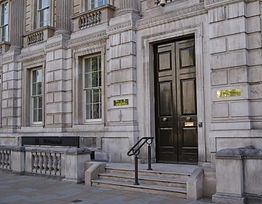Should Badly-Treated Suppliers Receive Millions? Green Paper Wrestles with a Tricky Issue
Just before the end of 2020, the UK government issued a Green Paper on the future of public procurement regulations post Brexit. I know, it sounds dull, but before you stop reading, this matters to every taxpayer and citizen in the UK. The government spends some £300 Billion of our money every year with suppliers, so getting that right has a huge impact in terms of value for money, the economy, as well as the services provided to UK citizens.
One of the themes in the Paper is around proposed changes to the way that unhappy bidders can complain about and challenge procurement decisions. Without going into all the gory details here, pretty much everyone involved would agree that the current process is slow, cumbersome, and often leaves the bidders feeling unhappy. It can be a real problem for the buyer, even if they haven’t done anything wrong.
So this is an area where change is needed. But has the Green Paper got it right?
One controversial proposal is to cap the damages that a bidder can receive to one and half times the bidding costs plus legal fees, except in some exceptional circumstances. Critics of that idea say it will greatly reduce the incentive for a supplier to challenge, even when there has been bad or unfair procurement.
I have very mixed feelings on this issue, and there are some tricky balances here. In my Bad Buying book, I tell the story of a disastrous Nuclear Decommissioning Agency (NDA) contract.
“The case involved a 2016 legal challenge by Energy Solutions Ltd., the incumbent supplier for a huge contract to clean up de-commissioned UK nuclear power stations. They lost the tender … to a Babcock Fluor consortium (CFP). But there were a number of mistakes made during the procurement process.
One related to “pass / fail thresholds”; areas where the NDA defined up-front that failure to meet certain conditions would lead to instant disqualification for the bidder. However, once bids were scored, it became clear that one supplier had failed to meet the threshold. But instead of chucking them out of the competition, the NDA decided to let them stay. Now this may all seem a little technical, but it is clearly unfair; and public procurement regulations really don’t like unfair buying processes”.
You can’t change your mind about the rules once you get into the buying process. As the judge said, after a bidder has failed to meet a defined threshold, you can’t ask “was that threshold Requirement really that important?”, arrive at the conclusion that it was not, and then use that conclusion to justify increasing the score to a higher one than the content merited (or to justify failing to disqualify that bidder)”.
To disguise the failure of one bidding firm, the NDA team also adjusted original scores given to the bidders during the marking process. But they failed to provide any audit trail or justification for these changes, a fact that became obvious through the trial.
The judge found that the procurement did break the rules – an unsurprising outcome because it was one of the most blatantly unfair, incompetent tender evaluation processes I have ever seen. The NDA agreed to pay the firm (and their consortium partners Bechtel) around £100 million to settle the legal claim for their loss of profit on the contract. And an inquiry into the fiasco still hasn’t appeared, unfortunately.
Now that doesn’t really seem like a fair solution for the UK taxpayer, however bad the procurement process was. £100 million is a lot of money! But equally, firms should have the right to recover something – and probably more than 1.5 times bid costs – if they miss out on a contract because of incompetent, unfair or illegal procurement.
The failure to publish the report into the NDA affair is another common problem. In another case, Virgin Health received a settlement rumoured to be in the millions because of a botched procurement run by six clinical commissioning groups (CCGs) in Surrey, Surrey County Council (my home county) and NHS England. But the settlement and case details were subject to a non-disclosure agreement, so we never found out what happened, and that means other contracting authorities cannot learn from the expensive mistake.
So that was “Millions out of the health service and into the pockets of billionaire Richard Branson” – at least that is how some saw it, although Virgin defended their action. Again, I would support the right of firms to challenge and get some reward if they are truly victims. But more thought probably needs to go into the Green Paper recommendations, and I would also make it compulsory for both parties to disclose full details of the challenge publicly. No more of these Bad Buying cover-ups please.









Leave a Reply
Want to join the discussion?Feel free to contribute!